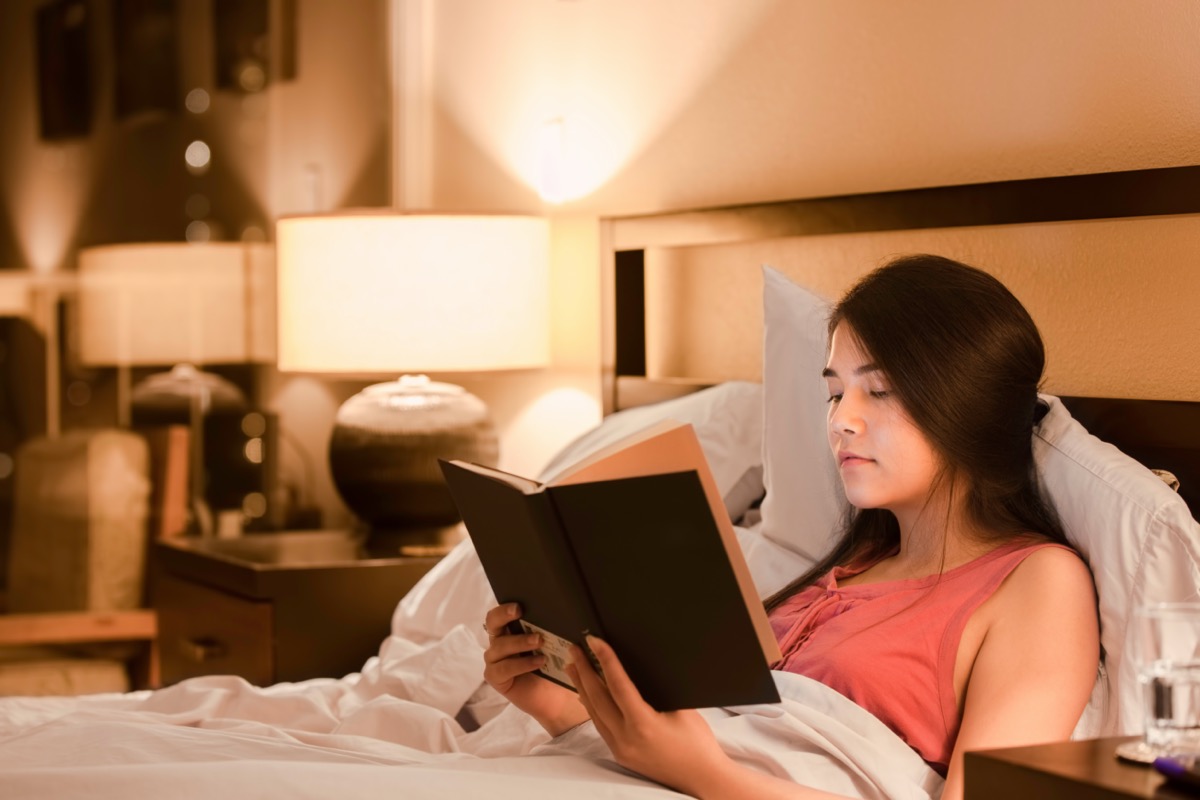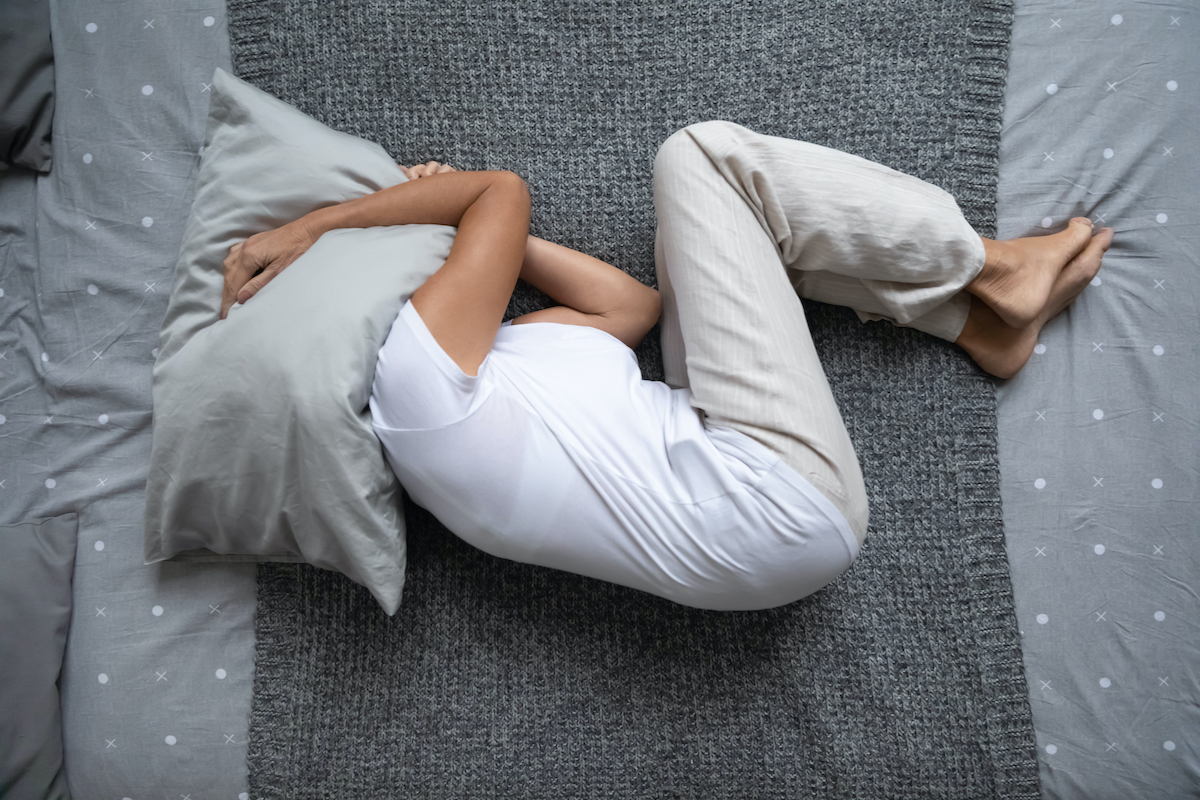People Over 40 Who Do This Get Less Sleep, Says New Study

Scientists have well established by now that staring at your devices in the evening does terrible things to your slumber. Also, that it's particularly insidious for young people. In fact, a study of five- to eight-year-olds published last year in the Journal of Clinical Sleep Medicine found that "excessive smartphone use was related to shorter total sleep time in children," and "use of a smartphone was also associated with significant reductions in the quality of sleep in younger children."
Now, if you're over 40 and living in 2021, chances are you already know that reading your phone, your tablet, or your computer before bed is a bad idea. If you don't, know that your devices emit shorter wavelength light that's a total sleep killer. (For more on that, simply refer to this article here: Side Effects of Staring at Your Phone Too Much.) And it's also why health proponents the world over will tell you that if you're reading before bed, you need to read a good old-fashioned printed book.
But will tucking into your favorite Grisham thriller actually help you get longer, quality sleep? A new study published this week in the journal Nature and Science of Sleep analyzed the sleep habits and reading habits of thousands of people, and the news could have you rethinking one of your favorite nighttime habits. Read on to learn what the researchers found, and for more ways to get more Z's, make sure you're aware of the 4 Bedtime Habits That Are Harming Your Body, Says Science.
Studying Readers of Print Books

The study was conducted by researchers at the Department of Epidemiology and Health Statistics at the School of Public Health and Management at Ningxia Medical University, in China, and focused on 18,740 adults over 40 years in age, approximately 15% of which were regular readers of print books. Now, as the researchers note, it's relevant that this study was conducted in China, because "printed reading materials are still" the preferred reading method for "middle-aged and elderly people." The data they analyzed came from a big research project known as the 2018 China Family Panel Studies. Variables they measured and factored into their analysis and models included "reading behavior," "reading quantity," "sleep duration," "sleep-onset time," and "sleep quality."
The researchers also factored in sleep-related behaviors that included nicotine habits, alcohol habits, exercise habits, napping habits, whether or not they suffer from disease, and how they perceive their own health.
Readers Get Less Sleep Overall

At the end of the study, the researchers found that, on average, those who read more consistently got "significantly" shorter sleep on weekdays, but not on weekends. The time of night when readers went to bed was also later. And if you have trouble sleeping these days, check out The Secret Trick for Going Back to Sleep After Waking Up at Night, Say Sleep Scientists.
But Non-Readers Get Less Quality Sleep

That's right. According to the study, the readers may get less sleep, but the quality of their sleep was unaffected. Meanwhile, the non-readers experienced poorer sleep quality overall than their reading counterparts, even though they went to bed earlier and logged more hours of sleep. And for more great sleep advice, don't miss The Secret Trick for Great Sleep No Matter Your Age, Say Experts.
Does This Mean You Shouldn't Read Books?

Of course not! Though the study found that reading wasn't associated with getting more or less quality sleep (and the study authors go out of their way to throw shade at a Bustle article about the benefits of reading before bed), the authors note what appears to be painfully obvious: If you love reading before bed, it may be helpful for you to set a bedtime.
As the researchers hypothesize: "The decreased weekday sleep duration attributed to reading might be due to reading time reducing the total bedtime on weekdays… Our results showed appropriate reading [emphasis ours] could prolong sleep duration… On weekends, participants might have had a lot of leisure time that can be devoted to reading."
So read on—just be sure to turn out the light at the right time so you're not getting to bed later. And for some great tips for getting better sleep starting tonight, don't miss this One Simple Sleep Trick That Can Change Your Life, Say Doctors.








